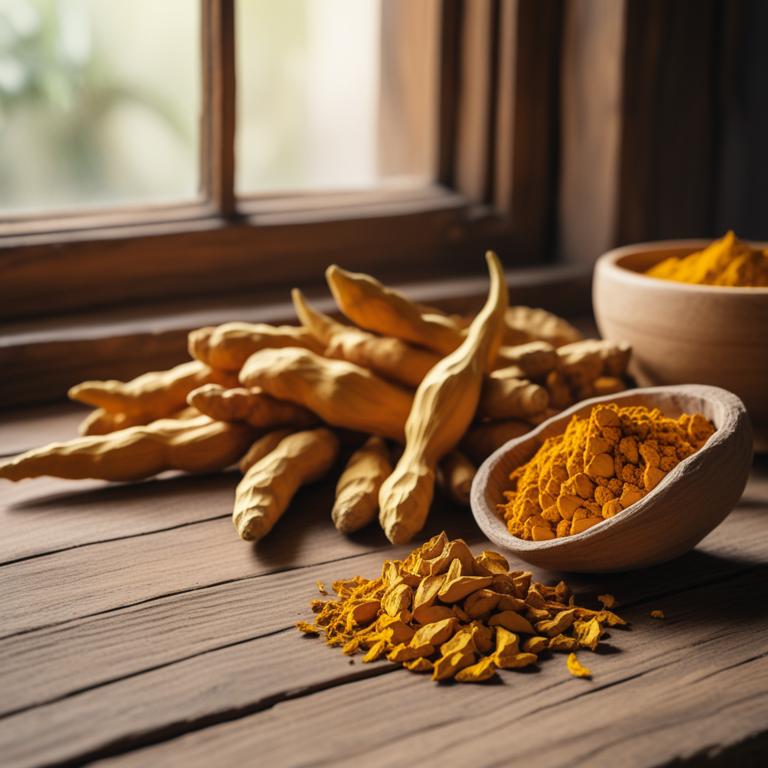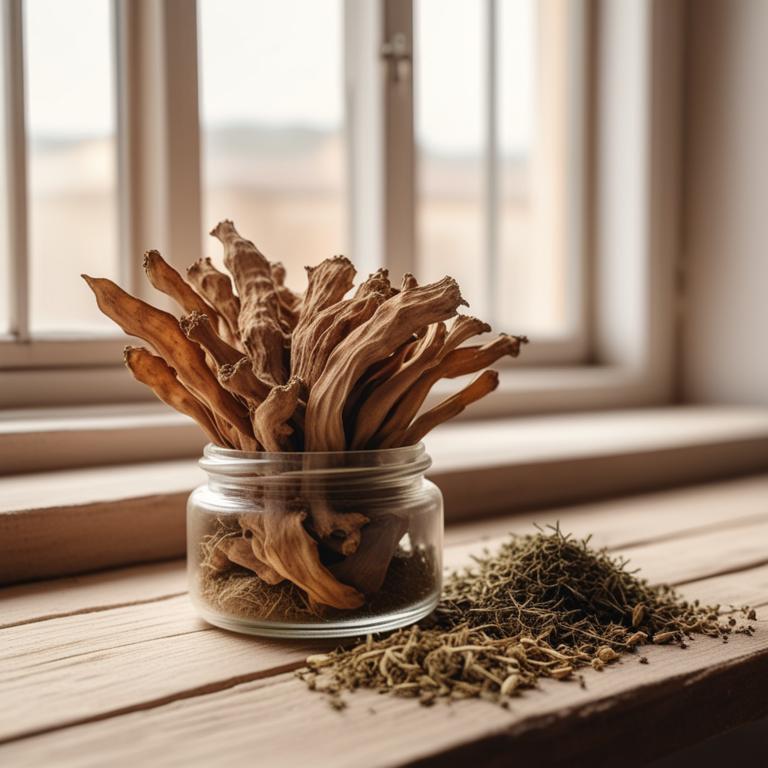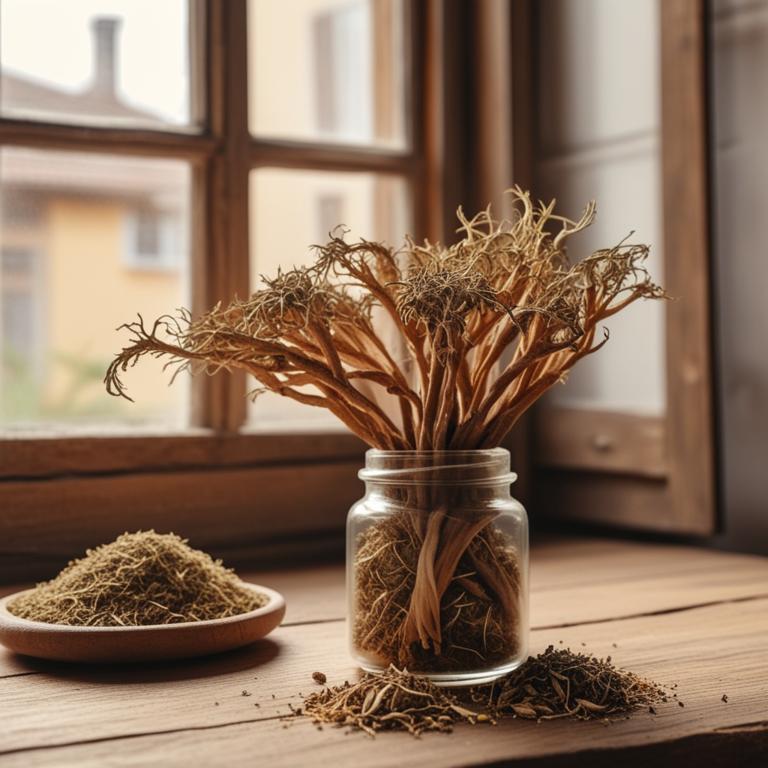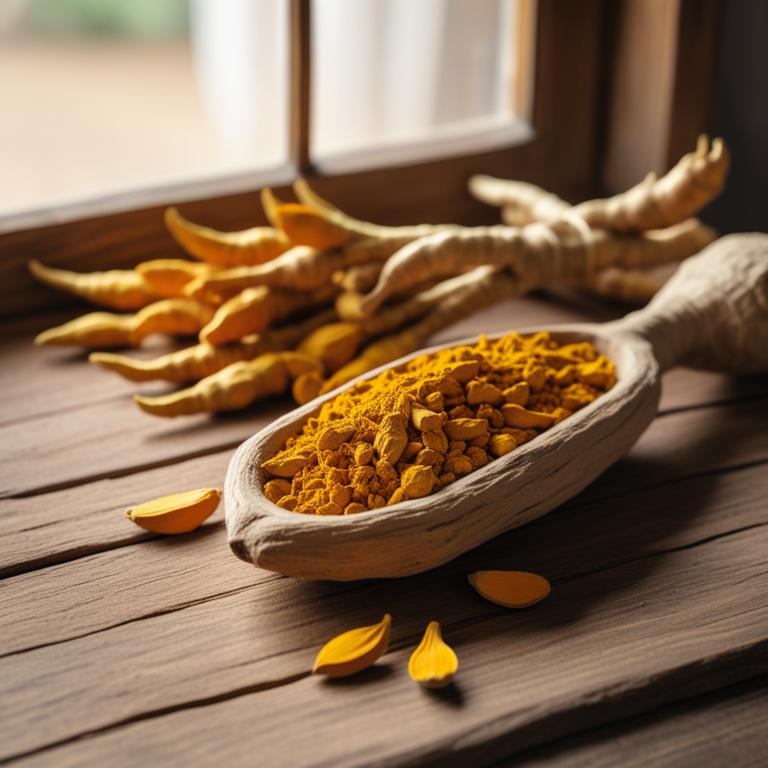Updated: Dec 1, 2024
Stomach Pain Relief: Understanding Causes and Using Herbal Preparations

Stomach pain can make everyday life a real challenge.
It can be a dull ache or a sharp cramp that leaves you feeling uncomfortable and irritable. Sometimes, it can be a sign of a more serious issue, like food poisoning or an ulcer. Other times, it can be caused by eating foods that don't agree with you, like spicy or fatty foods, or by stress and anxiety. Whatever the cause, stomach pain can be a real nuisance.
Fortunately, there are some natural remedies that can help soothe the stomach and ease the pain. Herbs like peppermint, ginger, and chamomile have anti-inflammatory properties that can help calm the stomach and reduce inflammation. Peppermint tea, for example, can help relax the muscles in the stomach and ease cramps, while ginger tea can help reduce nausea and vomiting. You can also try drinking a warm chamomile tea to help calm your mind and body. Some people also use herbal supplements like meadowsweet and dandelion root to help soothe the stomach and promote digestion.
These herbs can be found in various forms, including teas, capsules, and tinctures, and can be used to help manage stomach pain and discomfort.
Table of Contents
What triggers stomach pain?
The main causes of stomach pain are often related to various health issues that affect the digestive system.
Food poisoning is one common cause, which occurs when you eat contaminated or spoiled food that contains harmful bacteria, viruses, or other pathogens. This can lead to stomach cramps, diarrhea, and vomiting. Appendicitis is another cause of stomach pain, where the appendix, a small pouch attached to the large intestine, becomes inflamed due to a blockage or infection. As the appendix swells, it puts pressure on surrounding nerves, causing severe pain in the lower right side of the abdomen.
An ulcer, typically in the stomach or duodenum (the first part of the small intestine), is a sore that forms when stomach acid damages the lining of the digestive tract. This can be caused by factors like long-term use of painkillers, excessive alcohol consumption, and spicy or fatty foods. Ulcers can cause sharp pains, nausea, and difficulty eating. Gallstones are small, hard deposits that form in the gallbladder, an organ that stores bile to help digest fats. These stones can block the bile ducts, leading to severe pain in the upper right or middle abdomen, especially after eating.
The pain can be intense and may radiate to the back or right shoulder.
What are the advantages of employing herbs for stomach pain relief?
Using herbs for stomach pain can be really helpful.
They can ease digestion, reduce inflammation, and calm the stomach muscles. Some herbs have natural antacid properties, which help neutralize stomach acid and relieve heartburn.
Others have anti-spasmodic effects, which can slow down rapid muscle contractions and cramping. This can make it easier to pass gas and stool, reducing discomfort and bloating. Some herbs also have antibacterial properties, which can help combat infections that may be contributing to stomach pain.
By using herbs, you can avoid harsh medications and their potential side effects, and find a more natural way to soothe your stomach.
What are the primary medical herbs for treating stomach pain?

Herbs have been used for centuries to soothe stomach pain, and for good reason.
One of the most effective herbs is Curcuma longa, also known as turmeric. It contains a powerful compound called curcumin, which has anti-inflammatory properties that help reduce swelling and ease pain in the stomach. Another herb that's great for stomach pain is Zingiber officinale, or ginger. Ginger has natural anti-inflammatory properties that help calm the stomach and reduce nausea. It also helps to stimulate digestion and relieve bloating.
Glycyrrhiza glabra, or licorice root, is another herb that's been used for centuries to soothe stomach pain. It contains compounds that help reduce inflammation and promote the healing of stomach ulcers. Peppermint, or Mentha x piperita, is also a great herb for stomach pain. Its menthol content helps to relax the muscles in the stomach and reduce cramping. Fennel, or Foeniculum vulgare, is another herb that's often used to soothe stomach pain.
It contains compounds that help stimulate digestion and reduce bloating, making it a great natural remedy for stomach discomfort.
What herbal preparations are most frequently used to manage stomach pain?

Herbal preparations can be super helpful for stomach pain.
Let's break down some of the most popular ones. Decoctions are great because they're made by simmering herbs in water, which helps to release all the good stuff. This method is perfect for roots and bark, which can be tough to digest otherwise. For example, ginger decoction can calm your stomach and reduce nausea. Infusions are similar to tea, but they're made with fresh herbs like peppermint, chamomile, or lemon balm. These herbs are easily absorbed by the body, making them great for stomach issues like cramps and inflammation. You can make an infusion by steeping the herbs in hot water for a few minutes.
Tinctures are liquid extracts of herbs that are made by soaking them in a solvent like alcohol or vinegar. They're really potent, so a little goes a long way. Tinctures can be taken internally to help with stomach pain, but they're also used topically to soothe skin irritations. Capsules are a convenient way to take herbs in a controlled dose. They're often filled with dried herbs like peppermint or chamomile, which can be easily absorbed by the body. Capsules are great for people who have trouble swallowing pills or want to take their herbs on-the-go. Lastly, salves are topical creams or ointments made with herbs like aloe vera or calendula. They're perfect for soothing skin irritations, like burns or rashes, which can be caused by stomach issues.
Applying a salve to the skin can help calm the area and reduce inflammation.
Additional Resources:
What herbs might exacerbate stomach pain, and should be avoided?
If you're experiencing stomach pain, it's best to steer clear of certain herbs that can make it worse.
Cinchona officinalis, for example, contains compounds that can irritate the stomach lining and make acid production worse, leading to more discomfort. Piper nigrum, or black pepper, may seem harmless, but its heat can inflame the stomach and cause more pain.
Capsicum annuum, the chilli pepper, has a similar effect, as its capsaicin can irritate the stomach and make digestion more difficult. Hydrastis canadensis, goldenseal, may cause stomach upset in some people due to its bitter compounds, which can be hard to digest.
Lastly, Sassafras albidum, with its volatile oils, can cause stomach cramps and nausea in some individuals, especially when consumed in large amounts or in combination with other herbs that can irritate the stomach.
FAQ
Are there any specific herbs that can prevent stomach pain?
Ginger is known to help soothe stomach pain.
Its anti-inflammatory properties can calm the digestive system. Fennel is also a natural remedy for stomach issues, as it aids digestion and reduces discomfort. Peppermint oil can ease cramps and nausea by relaxing the muscles in the stomach.
These herbs may help alleviate stomach pain naturally.
Is it safe to use herbal remedies for stomach pain during pregnancy?
If you're pregnant and experiencing stomach pain, it's generally recommended to talk to a medical professional before using herbal remedies.
Some herbs can be safe, but others may cause harm to you or your baby.
Certain herbs, like ginger, are sometimes used for nausea, but their safety during pregnancy is not fully understood.
Are there any herbs that can reduce the frequency of stomach pain?
Some herbs, like ginger and peppermint, have been used to help soothe stomach pain.
Ginger can calm nausea and reduce inflammation, while peppermint can ease cramps and spasms. These herbs may help reduce the frequency of stomach discomfort by promoting digestion and relaxation.
They can be consumed in tea form or added to food.
Can i combine different herbal remedies for stomach pain?
Yes, you can combine different herbal remedies for stomach pain.
But be careful, as some herbs can interact with each other. For example, ginger and peppermint can help soothe your stomach, while chamomile can calm any anxiety.
Just mix them in small amounts and see how your body reacts.
Related Articles

Constipation Prevention and Treatment with Herbal Preparations

Gastroparesis Natural Treatment: Causes and Medicinal Herbs for Relief

Stomach Cramps: Effective Herbal Preparations and Medicinal Plants

Ulcerative Colitis: Investigating the Role of Medicinal Herbs and Preparations

Hyperacidity and the Power of Herbal Remedies






